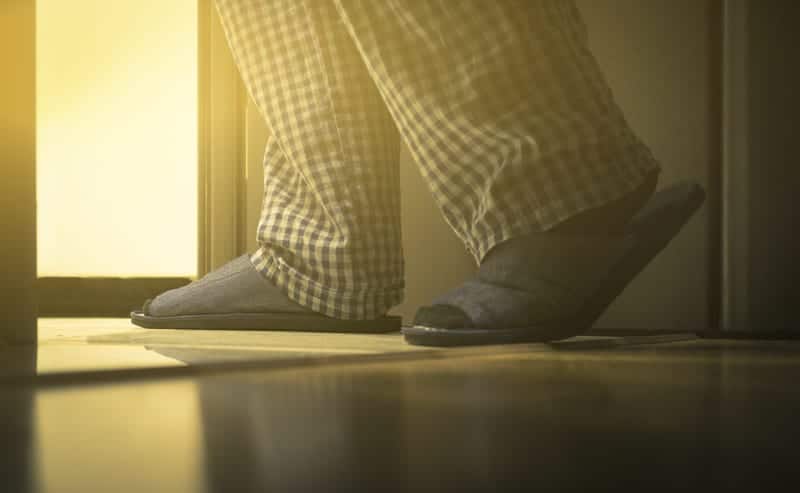While nocturia and poor sleep quality have been linked to such daytime problems as difficulty concentrating, a general lack of energy and irritability or impulsive behaviors, three new studies presented at the 113th Annual Scientific Meeting of the American Urological Association (AUA) are proving poor sleep quality can lead to serious health risks. During a joint press conference at the Moscone Convention Center in San Francisco ob May 20, researchers shared data highlighting their association between poor sleep quality, nocturia, low testosterone, erectile function, elevated body mass index (BMI), and even early death. Tobias S. Köhler, MD, MPH, FACS, men’s health specialist and urologist with the Mayo Clinic in Rochester, Minn, moderated the session.
Publication #MP04-15 Nocturia is Associated with an Increased Risk of Death: Results from REDUCE
Nocturia is a common complaint among aging men and is when a patient wakes up two or more times each night to urinate. While nocturia is known to be associated with an increased risk of falls, it is less clear if nocturia correlates with long-term overall health or a higher risk of death. Researchers from around the country conducted a study using data from the REDUCE, a 4-year study to reduce the incidence of prostate cancer in men who are at increased risk. Cox proportional hazards models were used to test the association between nocturia (modeled per 1-unit increase in episodes on a continuous scale 0-5) and risk of death in nearly 7,700 men. Multivariable models were adjusted for age, treatment arm, body mass index, coronary artery disease, diabetes, geographic region, and race. Secondary analysis adjusted for IPSS score and a validated sleep survey.
Results showed:
- More nocturia episodes were associated with increased hazard of death on univariable (HR 1.23, p=0.003) and multivariable analyses (HR 1.16, p=0.048).
- After adjusting for composite IPSS score without nocturia among men with complete IPSS surveys or sleep survey questions, the relationship between nocturia and death was slightly lower, but overall, little changed and nocturia remained associated with an increased risk of death.
- If confirmed through additional studies, understanding the link between nocturia and death will be crucial and specifically testing whether treatments aimed at reducing nocturia and improving overall survival will be warranted.
Publication #PD09-10: Impaired Sleep is Associated with Low Testosterone in U.S. Adult Males: Results from the National Health and Nutrition Survey
Testosterone deficiency has been linked to several adverse health outcomes including cardiovascular disease, erectile dysfunction, and metabolic syndrome; however, recent data has suggested abnormal sleep quality may also result in lower testosterone levels. Using data from the 2011-2012 National Health and Nutrition Surveys (NHANES), researchers set out to assess the effect of sleep patterns on testosterone levels in males 16 years and older.
Using a 2011-2012 NHANES dataset, researchers extracted serum total testosterone level, sleep duration, physical activity, demographic, and comorbidities for nearly 2,700 men aged 16 years and older. Univariate and multivariate linear regression was used to estimate the association between the number of hours slept, prior comorbidities, physical activity level and demographics with serum testosterone.
Results showed:
- Among men aged 16-80 in the US, low testosterone was associated with impaired sleep and an elevated BMI.
- Researchers concluded that future evaluations of reduced testosterone levels should focus on diet and exercise, as well as sleep quality and habits.
Publication #PD27-08: Poor Sleep Quality Is Associated with Clinically Significant Erectile Dysfunction
Questionnaires were utilized to assess the relationship between sleep quality and erectile function in 377 men, with a mean age of 46. Patients were asked about comorbidities, smoking, and shift work status, BMI, as well as daily caffeine and medication use. Researchers assessed the relationship between sleep and erectile function while controlling for age, BMI, burden of comorbidity, testosterone, and PDE5 inhibitor use. Caffeine, melatonin, and other sleep medication use, CPAP use, shift work, smoking, depression status, and antidepressant use were also assessed.
Results showed:
- As measured using the PSQI (Pittsburgh Sleep Quality Index), men had worse erectile function as sleep quality decreased.
- Sleep apnea was not associated with worse erectile function while melatonin use was associated with significantly worse erectile function.
- Age, depression, and increased comorbidities were associated with worse erectile function.
“These studies point to some very alarming consequences for men with impaired sleep habits,” Köhler says. “Men should be aware that a commitment to improving one’s sleep habits could lead to improved erectile function along with a host of many other established health benefits that accompany a good night’s sleep.”



